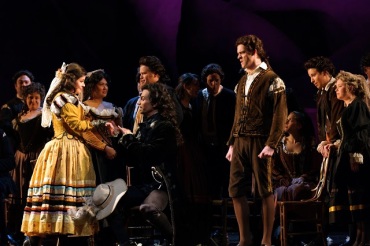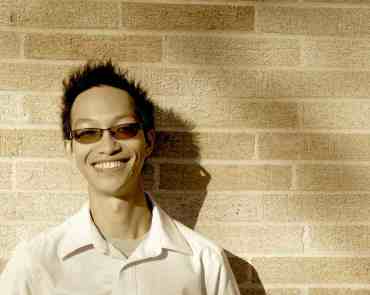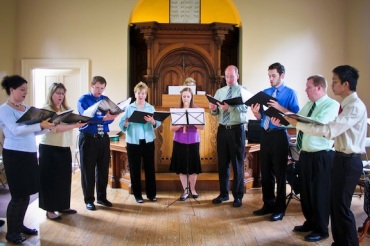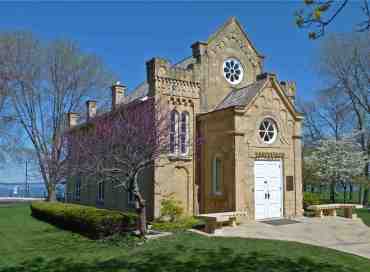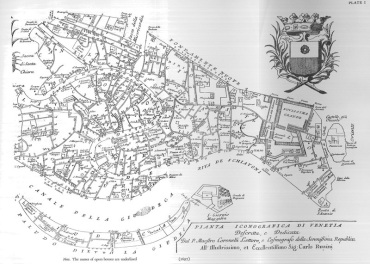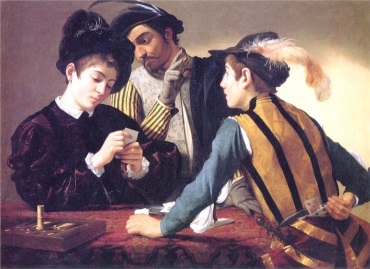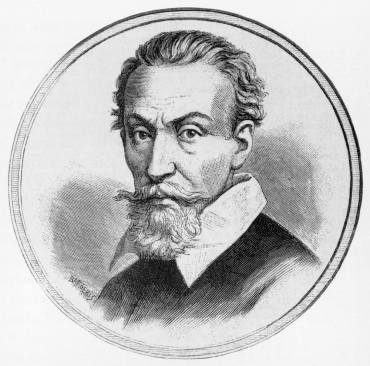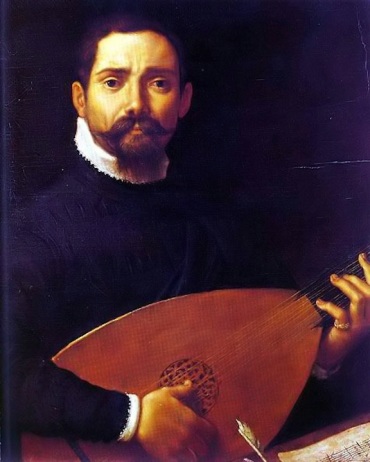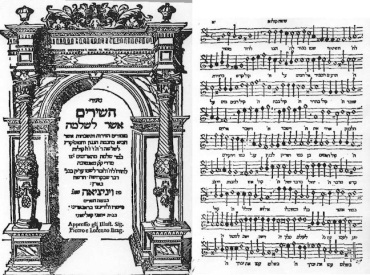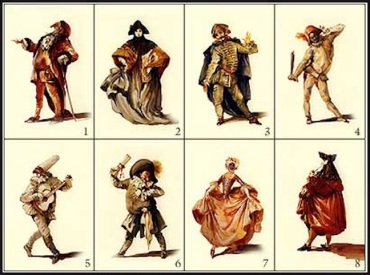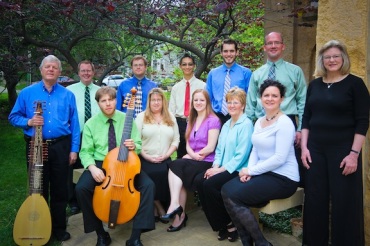The Well-Tempered Ear
Classical music: A vocal concert this Saturday night and Sunday afternoon by the early music group Eliza’s Toyes will explore the world of 17th century Venice. Plus, the Wisconsin Gazette compares the Madison Opera’s production of Mozart’s “Don Giovanni” this weekend with “The Marriage of Figaro” in Milwaukee in May.
3 Comments
ALERT: In the latest issue of Wisconsin Gazette, Madison arts writer Mike Muckian, with some help from The Ear, has written a contrast-and-compare story about two of Mozart’s finest operas: “Don Giovanni” and “The Marriage of Figaro.” The first is being staged this weekend in Madison by the Madison Opera, and the second in May in Milwaukee by the Florentine Opera. Kathryn Smith, the general director of the Madison Opera, discusses her production of “Don Giovanni” — which she calls her favorite opera. (Below is a rehearsal photo by James Gill from a rehearsal of Madison Opera’s “Don Giovanni.”) Performances are this weekend in Overture Hall on Friday night at 8 p.m. and Sunday afternoon at 2:30 p.m. Here are links, first to the story and then to the Madison Opera’s website with information about the opera, the production and tickets:
http://www.madisonopera.org/performances-2012-2013/don_giovanni/
By Jacob Stockinger
Today’s posting is by guest blogger Jerry Hui (below).
Few young musicians in Madison, or anywhere for that matter, are as talented or as diverse in their interests as Jerry Hui. He directs and sings in an early music vocal group Eliza’s Toyes and also sings with the Madison Bach Musicians. He is a founding member and director of New MUSE (New Music Everywhere), a University of Wisconsin-Madison student group that performs and promotes new music and stages flash mobs. And he is a composer who wrote and produced an Internet opera, “Wired For Love,” as his doctoral thesis at the UW School of Music. He also incorporates the more modern aesthetic of using art to promote social progress.
For more information about Jerry Hui, visit: http://jerryhui.com
Jerry recently offered to write a preview of the concert by Eliza’s Toyes this weekend – an offer too good to refuse. Here is it, complete with links to YouTube videos so you can sample much of the repertoire:
By Jerry Hui
This weekend, the Madison-based early music group Eliza’s Toyes (below) will be presenting a new and ambitious early music concert that will showcase secular music by various composers from Venice of the early 17th century, all tied together in dance and semi-improvisatory comedy theater, in a program titled “Casino Royale: A Venetian Music-Comedy.”
Two performances will take place on the same weekend: On this Saturday, April 27, at 7:30 p.m. at the historic Gates of Heaven Synagogue (below) in downtown Madison at James Madison Park, 302 East Gorham Street; tickets at the door are $15 for the public, $10 for students); and the on Sunday, April 28, at 4 p.m. at the Chocolaterian Café, 2004 Atwood Ave.; free admission, with donations accepted accepted).
Venice (below, in a map from the 17th century) was a thriving city-state. Its unique geographical location in the Mediterranean guaranteed its success from maritime trade, and the wealth that was bestowed upon countless merchants.
As the capital city of the Republic of Venice — a state so prosperous that it was known as La Serenissima (“the most serene”) — Venice was well-known for its treasures and splendors. Naturally, this city of riches would attract people from all walks of life: merchants, bankers, aristocrats, artists, craftsmen, thieves and gamblers.
Gambling is an ancient activity as old as human history. Some civilizations, like the Romans, permitted social gambling during holidays and festivities, and otherwise forbade it. But who was to forbid what many desired? More than a friendly diversion, it could be a shortcut to luxury, a chance to change, an opportunity to enter the highest of society. (Below is a painting by Caravaggio portraying a dishonest card game.)
Venice, being the city of all things sumptuous, was among the first in Europe to be swept by the popularity of playing cards and lottery. Dice games were played on the squares, in street corners, in stores, and in private homes. Noblemen, even when gambling was explicitly banned, ran games in their private spaces, known as the “ridotti” (from ridurre, meaning to reduce, close or make private).
In 1638, after decades of inability to rein in the betting, the Venetian Great Council finally chose a creative solution. Not only would they legalize gambling, they would also open the Ridotto: the first legal, state-sanctioned public gambling house ever in Europe.
Our program draws its inspiration from the opening of Ridotto. All musical pieces were written by composers working in Venice in the first few decades of the 17th century, including: Ippolito Baccusi, Giovanni Gabrieli, Claudio Monteverdi, Giovanni Antonio Rigatti, Salamone Rossi and Marco Uccellini.
We are performing two pieces from Monteverdi’s Eighth Book of Madrigals, subtitled the “Madrigals of War and Love,” published in 1638: “Non partir ritrosetta” (http://youtu.be/C31WBUOax3M) is a passionate trio, imploring a lover to stay. “Dolcissimo uscignolo” (http://youtu.be/njOBmL1DBCM), on the other hand, is an introspective lament of unrequited love.
Giovanni Gabrieli (below), the composer and famous organist of San Marco, needs no introduction. However, our selection comes not from his more frequently performed sacred music. Instead, we chose his lesser-known secular madrigals. “Quand’io ego giovinetta” is a funny story about an old man’s misadventure in love. “O che felice giorno” (http://youtu.be/khXVHY7k3No?t=7m20s) depicts a celebratory wedding party, written with splendid double-choir counterpoint that is more common in his sacred music.
Many pieces in our program are by Salamone Rossi, a Jewish-Italian composer and violinist. (Below is a score by Rossi from Venice, the same city where Shakespeare set “The Merchant of Venice” with it theme of how Jews were treated in Renaissance Italy.) Whereas music history classes often bring up his unusual polyphonic setting of Song of Solomon in Hebrew, we will showcase many of his short madrigals written for 2-3 voices (such as “Volò ne tuoi begli’occhi” http://youtu.be/0MkUOVuWWvw). His instrumental pieces are playful and fiery; we’ll be playing many of his dances and sonatas, such as this “Gagliarda detta la Turca” (http://www.youtube.com/watch?v=CrkWHxpvibw&feature=share&list=PL9CECBC6113A4F7F9), or “Sonata settima sopra ‘Aria di un Baletto” (http://youtu.be/3jpNlwJTb7M).
In addition, we are venturing into the uncharted area of comic theater: all the music is tied together in a skit, semi-improvised in the Italian street-performance tradition of commedia dell’arte (below).
In this style, drama is driven by stock characters in masks: Pantalone the miser; Il Dottore the know-it-all; Harlequin the deviant servant; the young lovers and so on. Our scene takes place in one of the ridotti of Venice. Come to our concerts, and join them in their wild and funny adventures through music, comedy, and dance!
Eliza’s Toyes (below) is a small ensemble of singers and instrumentalists focusing on sharing the joy of early music in unusual and creative programs.
Started as an ad-hoc group during Madison Early Music Festival (http://madisonearlymusic.org), Toyes has recently performed at Wisconsin Public Radio’s “Sunday Afternoon Live From the Chazen” series, and is now in its fifth season as a regular performance ensemble.
The musicians include: Deb Heilert (soprano); Chelsie Propst (soprano; as “Isabella” in this production); Sandy Erickson (alto, recorder); Peter Gruett (alto/tenor; as “Il Dottore”); Jerry Hui (director, tenor/bass, recorder; as “Ottavio”); Mark Werner (bass; as “Pantalone”); Melanie Kathan (recorder; as “Harlequin”); Doug Towne (lute/theorbo); and Eric Miller (viol).
For more information, visit: http://toyes.info
Tags: Casino Royale, Claudio Monteverdi, Don Giovanni, Early music, Florentine Opera, Gates of Heaven Synagogue, Giovanni Gabrieli, Jacob Stockinger, James Madison Park, Madison, Madison Opera, Milwaukee, Mozart, Pietro Longhi, The Marriage of Figaro, University of Wisconsin–Madison, Venice, Wisconsin, Wisconsin Gazette, YouTube
